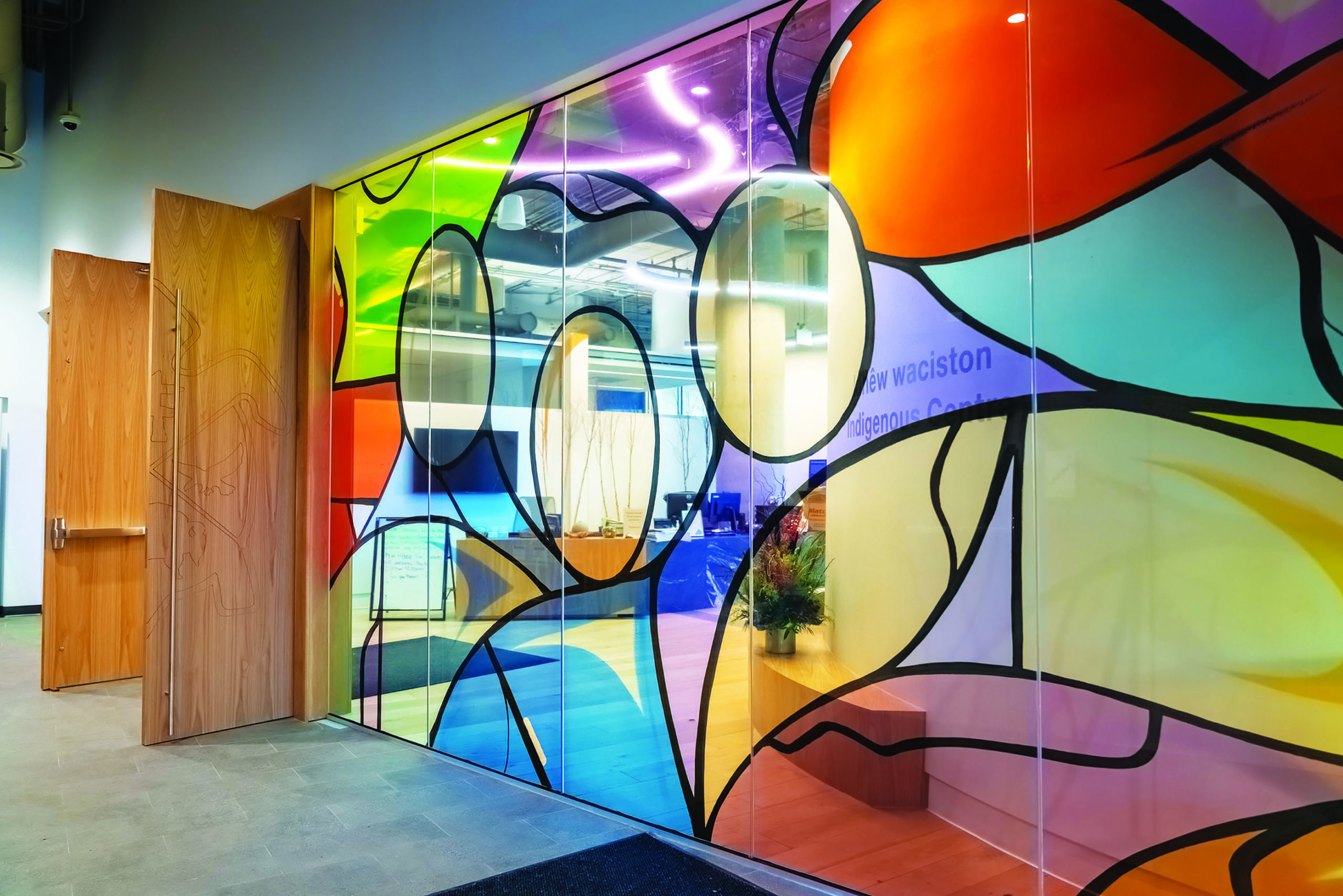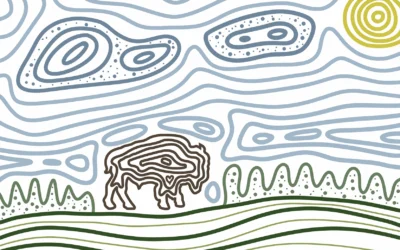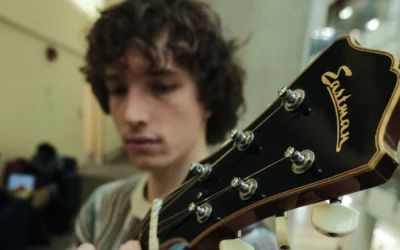MacEwan’s Indigenous Centre, kihêw waciston, is welcoming community back with open arms
As the fall term resumes again — in person, for the most part — MacEwan University students are looking forward to staring at something other than the crack in their bedroom wall, seeing someone other than their cat, and escaping the pile of dying houseplants. But there are more exciting opportunities to look for, especially the reopening of kihêw waciston, MacEwan’s Indigenous Centre.
The Indigenous Centre relocated to the east side of the Robbins Health Learning Centre in 2019 from their original space in Building 7, but operations weren’t able to continue in person for long due to COVID.
While kihêw waciston was able to continue programming online for the past year, Crystal Pennell, the coordinator and student advisor of the Centre, is looking forward to resuming in-person activities.
“We usually like to offer a lot of in-person community meals and lunch and learns, and really fun events throughout the year, so that’s something that we’re hoping to be able to pick back up in the fall,” she says. “And if not, we have a ton of virtual events that have been going on and probably will continue to happen as well.”
The Centre’s name, kihêw waciston, is a Cree term that means “Eagle’s Nest,” explains Pennell. “That kind of portrays the spirit of how we try to operate in terms of just being a really open and welcoming and safe space for Indigenous students and faculty and staff as well,” she adds. “But we’re also open to
the wider MacEwan community. Folks don’t have to self-identify as Indigenous to be able to come visit and access our services and our resources.”
The new space is much larger than the original setting the Indigenous Centre occupied in Building 7. “It’s enormous!” exclaims Pennell. “We have so many awesome amenities for students: we have a beautiful kitchen and lockers and computers, so we’re really excited to be able to go back into the office and welcome students into our space and get to enjoy it ourselves too.”
Part of the goal with kihêw waciston is to provide a welcoming space for Indigenous students who might feel out of place on campus. “A lot of Indigenous students on campus come from areas across Alberta and even beyond, from other areas across Canada,” says Pennell, “so we’re able to provide a home
away from home. That means that they’re able to come to the Centre and see folks who are also Indigenous, who kind of look like them, and are familiar with the culture.”
“It’s just a great place for people to connect and feel like they’re with a community,” explains Pennell, “even though they might be far away from their own community.”
The Indigenous Centre offers personal, academic, financial, and cultural support for those who come by. As a student advisor, Pennell and her colleague Jaycee Meneen support students in any way they can.
“We help students with time management, with navigating the student portal, being able to access scholarships and awards, (and) accessing the tutoring supports that we provide …. Basically, just being that kind of point person to direct them towards whatever resources they need and to be able to lend a
hand however we can,” Pennell explains.
The Centre also acts as the hub of Indigenous initiatives at MacEwan. Terri Suntjens is the director of Indigenous initiatives, and “she works alongside our Elder and our Knowledge Keeper to help inform policy and inform new projects and new strategies university-wide, to help be respectful and aid in those reconciliation efforts,” says Pennel.
As more children continue to be discovered in mass, unmarked graves at residential school sites, the Centre will play a vital role in providing healing and support for MacEwan’s Indigenous community.
Elder Francis Whiskeyjack supports students and staff who come to kihêw waciston, and the Centre also employs a Knowledge Keeper. “A big part of what they do is being able to support students in ways that are culturally conducive,” says Pennell. “So being able to sit with them and visit, or being able to connect them to ceremony, or participate in ceremony with them is really helpful for our students.” “Having a safe space to have some tea and visit
with somebody in confidence is really, really important as well,” explains Pennell, noting that Elders are able to provide such a space for visitors.
Students and community are welcome to join kihêw waciston for ceremony throughout the year. This provides a fantastic learning opportunity and a way to engage with MacEwan’s Indigenous community. The Centre offers a pipe ceremony at the beginning of the fall and winter terms and regular sweats throughout the year. “We also offer opportunities for students to attend cultural camps and to go medicine picking with us,” says Pennell.
As MacEwan’s Indigenous Centre, kihêw waciston is a valuable step toward reconciliation. Call to action number 62 from the 94 Calls to Action in the Truth and Reconciliation Commission calls upon post-secondary institutions to “Provide the necessary funding to post-secondary institutions to educate teachers on how to integrate Indigenous knowledge and teaching methods into classrooms.”Call to action number 63 calls upon Ministers of Education to “(build) student capacity for intercultural understanding, empathy, and mutual respect.”
The Centre examines both of these issues and works toward creating appreciation and understanding about Indigenous culture.
“It’s really beautiful to be able to collaborate and to be able to share our culture with others,” says Pennell, “and it helps to create robust understanding as well.”
The best thing non-Indigenous students and staff can do to support MacEwan’s Indigenous community is to stop by the centre, says Pennell. “Visit and get to know your Indigenous community at MacEwan. Get to know the students, engage with the faculty, and learn how to be a good ally.”
Most importantly, “Learn how to engage Indigenous knowledge and teachings into your work, (and) into your life,” says Pennell.
And while you’re at the bookstore this fall, picking up your textbooks, be sure to check out the new orange shirts kihêw waciston has for sale. The shirts were designed by a First Nations Youth for Orange Shirt Day on Sept. 30.
Becoming an ally has never been more important.
Image Credit: Supplied





0 Comments